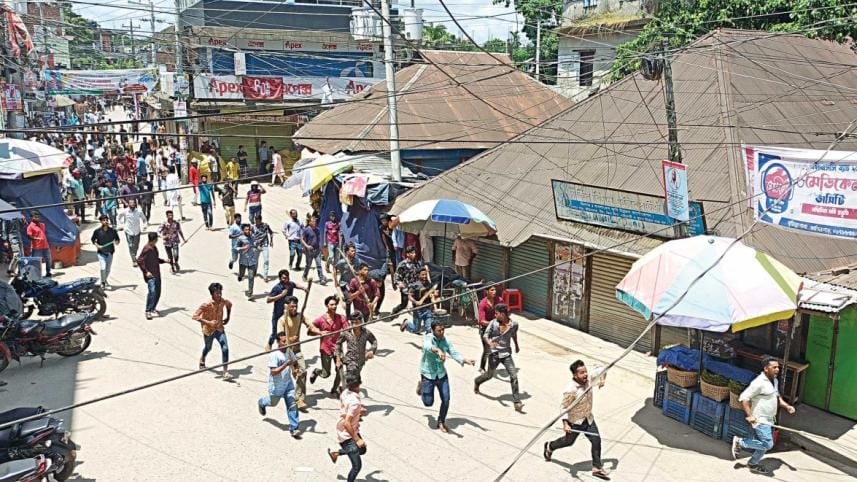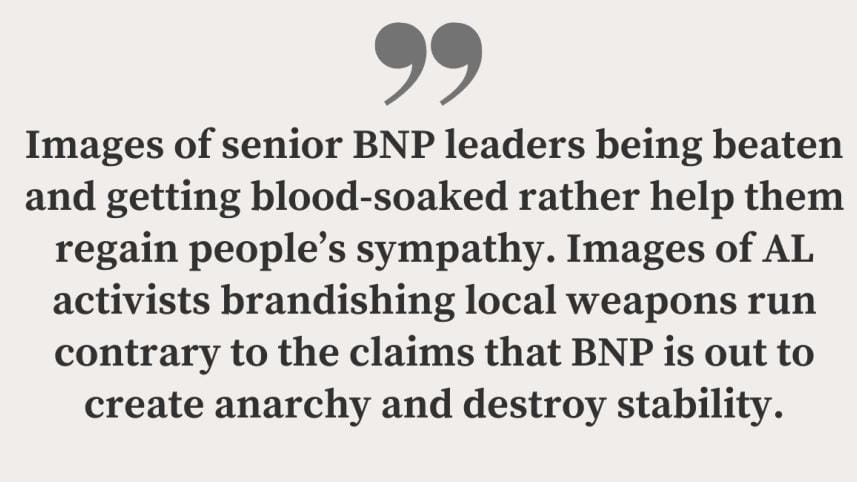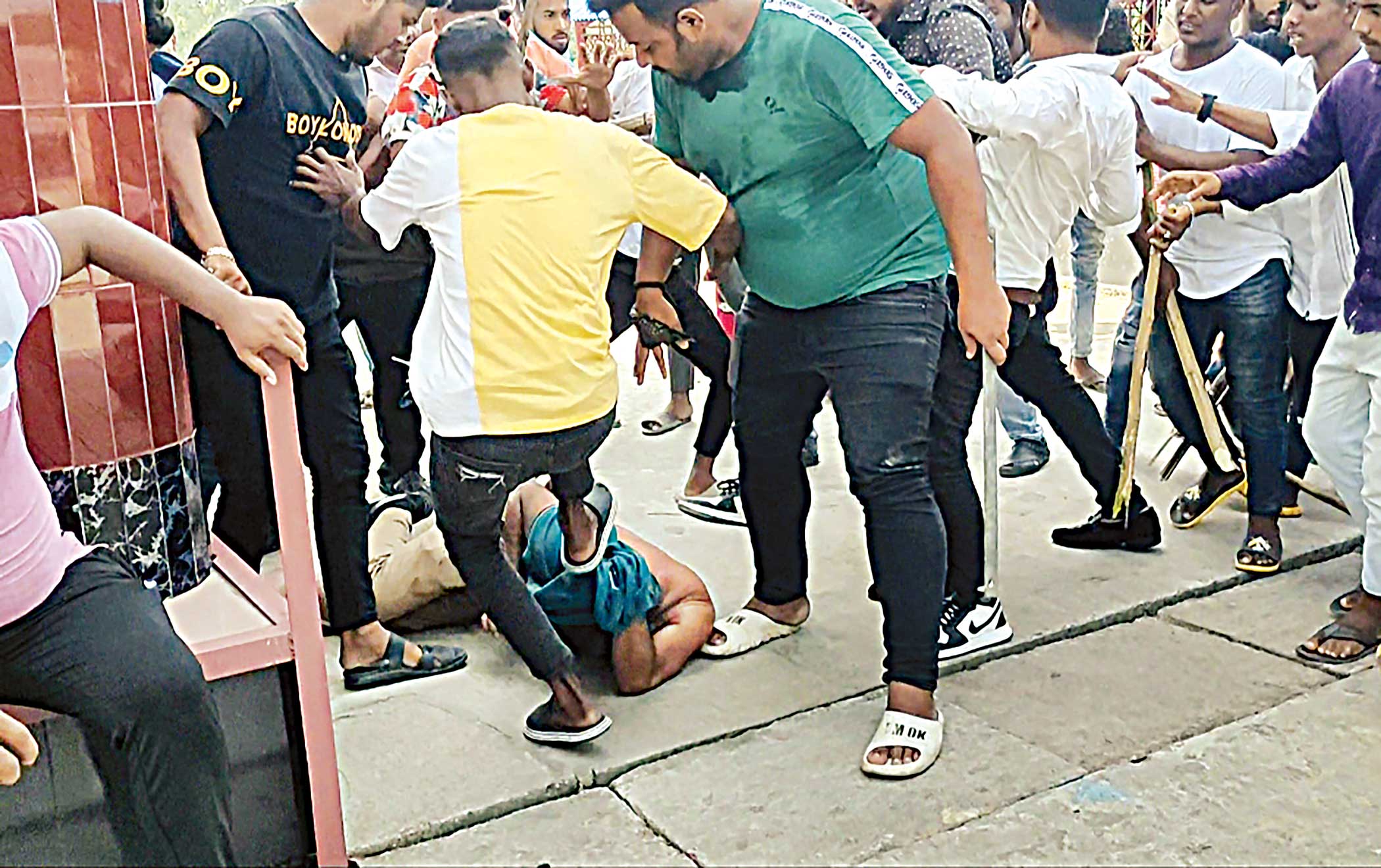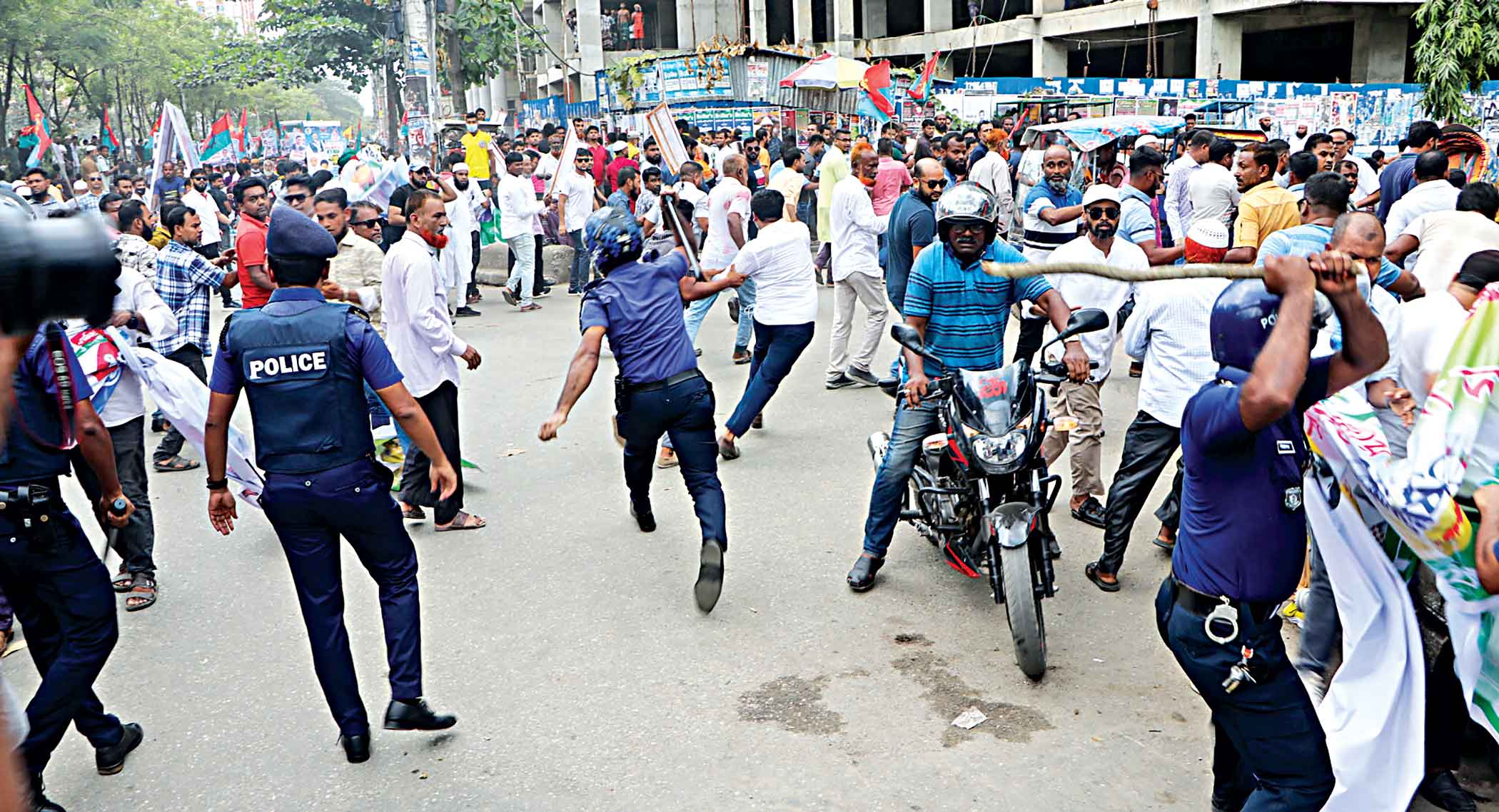What does AL gain from unleashing violence on BNP?

Since mid-August, hardly a day has passed when newspapers have not published a photograph or a story depicting attacks by the members of the ruling Awami League on the members of its arch-rival, the BNP. These attacks have intensified following quite a few ministers' assertion that their party would not leave the streets for the opposition to occupy. It follows the BNP's serial agitation programmes across Bangladesh protesting price hikes, the ongoing energy crisis, and alleged corruption. The statements by ministers were clearly taken by the ruling party members as a signal for resisting any attempts by the opposition parties to organise protests against the government. Though the BNP is the prime target of such denial of public space, parties like the Communist Party of Bangladesh (CPB) and Gono Odhikar Parishad, too, have not been spared.
With exceptions, particularly if attacked by police, most of the recent reports suggest that the BNP has made no serious attempts to counter these attacks. Rather, unlike before, their supporters melt away, presumably to avoid probable harassment by police, including arrests and alleged extortions. Another familiar pattern observed is that when supporters of the ruling party attack BNP activists, police either aid the attackers or remain as observers, instead of preventing such violent acts. These attacks are often indiscriminate, not making any difference between a young activist and a senior leader, men and women. Homes and vehicles such as cars and motorbikes of some leaders and party offices have been vandalised in random attacks.
It is hard to imagine how the leadership of the ruling party feels seeing those brutal acts splashed on newspapers or the video footage on TV screens. Feeling like the conqueror after each and every "successful" campaign to drive away alleged disruptors of the government's development mission could be one, and it may well boost the morale of the loyal followers. But those images are too distressing and disturbing for most citizens, making them feel more concerned and intimidated.
It is quite intriguing to understand what the Awami League is gaining from these attacks, other than defaming itself as a party that does not have faith in democracy, and hence resorting to denying space to opposition and dissent. Apparently, the BNP has opted a strategy for peaceful and non-confrontational protests, instead of the alleged violence for which they were much vilified in the past, in particular during their boycott of the 2014 election. Despite their denial, many of the incidents of arson on public transport and damages caused during that campaign were apportioned on them. The crackdown that followed the 2014 violence hugely dented their organisational capacity.

Perhaps that's why they have now become cautious and are avoiding physical resistance for the most part. As a result, we have witnessed, probably for the first time, that the BNP has observed programmes like candlelight vigils. Unfortunately, the Awami League functionaries in the capital city thought that should not be allowed either. The images of senior BNP leaders being beaten and getting blood-soaked rather help them regain people's sympathy, almost instantly.
Images of Awami League activists brandishing locally made weapons run contrary to the claims made by ministers that the BNP is out to create anarchy and destroy stability. Saying something in public and doing the opposite in reality is not new or unknown in politics. But repeating from the same playbook eventually exposes the truth. People are no longer easily persuaded into believing the official narrative that the protesting opposition is responsible for disturbing public peace. And police action, especially falsely implicating hundreds of BNP men, appears as nothing but malicious harassment. Investigations by Prothom Alo found that people living abroad during the alleged troubles have been falsely named in the cases.
Confrontational politics always harms the aggressor the most, and in the current environment, it is the Awami League that has been seen in the offensive. Recent tweets by European ambassadors expressing concern regarding attacks on the opposition also reflect how these attacks are viewed by our trade and development partners. These are signals to their respective capitals that the democratic future of Bangladesh is facing a serious threat, and violent suppression of protests would affect the environment adversely for the coming election.
The possibility of an adverse impact on the coming parliamentary election is not easy to rule out as senior leaders of the top two contending parties have been trading barbs over it. BNP Secretary General Mirza Fakhrul Islam Alamgir has alleged that the ruling party wants a walkover and that's why there's so much provocation. On the other hand, Awami League General Secretary Obaidul Quader has questioned BNP's eligibility in elections.
Some political observers have opined that back-to-back economic crises caused by the Covid pandemic and the Russia-Ukraine war, coupled with widespread corruption and a lack of accountability, have unnerved the government and the ruling party. The observers further say that the party in power is apprehensive of a popular mass movement, and that has prompted them to suppress any potential protest. The irony is that the Awami League, being the oldest party in the country, which thrived on organising mass movements, has forgotten the historical lesson that attempts to suppress protest only helps it grow, and is counterproductive.
Kamal Ahmed is an independent journalist and writes from London, UK. His Twitter handle is @ahmedka1




 For all latest news, follow The Daily Star's Google News channel.
For all latest news, follow The Daily Star's Google News channel. 

Comments